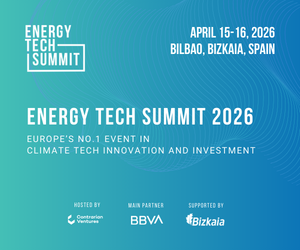Search - Search on Articles, Blogs & Tags
Total Results : 1161
EIB provides €130 million for energy production in Cyprus
- 2012-03-09 05:22:10
- David Flin
The European Investment Bank (EIB) has announced that it will provide €130 million to the Electricity Authority of Cyprus for a new power unit to enhance electricity supply in that country.
US ‘Clean Energy Standard’ proposed by Senator
- 2012-03-06 20:12:21
- Junior Isles
US Senator Jeff Bingaman has proposed the enactment of a ‘Clean Energy Standard’, which would reassure renewables investors, diversify US power generation and help to reduce carbon emissions.
Scotland proceeds with plans for 100 percent renewables by 2020
- 2012-03-06 05:09:46
- David Flin
Scotland’s Energy Minister Fergus Ewing has launched a draft Electricity Generation Policy Statement (EGPS), which sets out plans to build up renewable energy, with a target of achieving 100 percent of its electricity being delivered by renewable sources by 2020.
Asian demand for efficiency drives fuel cell expansion
- 2012-03-01 13:20:13
- Junior Isles
Intelligent Energy Ltd., a UK producer of hydrogen-based fuel cells, said growing demand in Asian for small-scale power generation has allowed it to raise $35 million to finance expansion.
Centrica cuts back on unprofitable UK gas-fired generation
- 2012-02-28 17:36:08
- Junior Isles
Centrica Plc, the UK’s biggest residential gas supplier, may mothball a further three of its eight gas-fired power plants, after already announcing the closure of two.
Spain drops out of renewable investment top 10 after suspending subsidies
- 2012-02-28 05:57:58
- David Flin
According to an Ernst & Young survey, Spain, which was the top-ranked renewable energy market for investors five years ago, has dropped out of the top 10 after suspending subsidies for new generation.
Belgian firm to supply Nigeria with gensets
- 2012-02-22 05:46:37
- David Flin
Europower of Belgium has announced that it has formed a strategic partnership with Sydney and Samuels International, a Nigerian IPP, to supply gensets to the Nigerian market.
Drax scraps plans for a dedicated biomass plant
- 2012-02-21 21:36:34
- Junior Isles
British coal-fired power producer Drax has scrapped its plans to build a dedicated biomass in North Yorkshire, but says it is ready to invest in biomass-fuelled power generation if the appropriate regulatory support is forthcoming.
UK and France sign nuclear power accord
- 2012-02-17 15:29:10
- Junior Isles
UK Prime Minister David Cameron and French President Nicolas Sarkozy are to sign an accord on civilian nuclear cooperation in light of the British government’s plan to build a new generation of power stations.
Scotland-England sub-sea cable contract awarded
- 2012-02-17 09:48:59
- Junior Isles
National Grid and ScottishPower have awarded a £1 billion contract to Siemens and cable manufacturer Prysmian for construction of the first sub-sea electricity link between Scotland and England.











